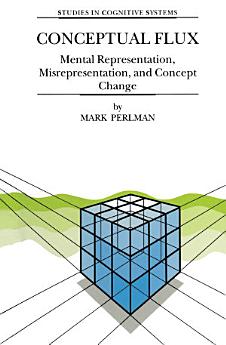Conceptual Flux: Mental Representation, Misrepresentation, and Concept Change
M. Perlman
kwi 2013 · Studies in Cognitive Systems Część 24 · Springer Science & Business Media
E-book
438
Strony
reportOceny i opinie nie są weryfikowane. Więcej informacji
Informacje o e-booku
How can one think about a thing, think something false about it, and still be thinking about that thing at all? If a concept is applied to something outside its meaning, how are we to say it does not mean that thing as well? The problem of misrepresentation is one of the central issues in contemporary philosophy of mind. Here, Mark Perlman criticizes the way all contemporary theories of mental representation seek to account for misrepresentation, concluding that it cannot be explained naturistically. Specifically, Perlman evaluates and criticizes the theories of mental content proposed by Fodor, Dretske, Millikan, Block, Harman and others, as well as examining verificationist approaches to meaning of Quine, Davidson and Stich.
The book goes much further than criticism, however: Perlman formulates a naturalistic theory of representation that reluctantly accepts the unfortunate conclusion that there is no misrepresentation. He adds a pragmatic theory of content, which explains apparent misrepresentation as concept change. Mental representations can be good or bad in specific contexts and for specific purposes, but their correctness is not a matter of truth and falsity. The pragmatic approach to mental content has implications for epistemology, theories of truth, metaphysics, psychology, and AI (specifically connectionist networks).
Readership: One of the most thorough examinations of mental representation and meaning holism available, this book should be read by everyone interested in the mind and how ideas can have meaning. It crosses boundaries from philosophy into psychology, linguistics, AI and cognitive science.
The book goes much further than criticism, however: Perlman formulates a naturalistic theory of representation that reluctantly accepts the unfortunate conclusion that there is no misrepresentation. He adds a pragmatic theory of content, which explains apparent misrepresentation as concept change. Mental representations can be good or bad in specific contexts and for specific purposes, but their correctness is not a matter of truth and falsity. The pragmatic approach to mental content has implications for epistemology, theories of truth, metaphysics, psychology, and AI (specifically connectionist networks).
Readership: One of the most thorough examinations of mental representation and meaning holism available, this book should be read by everyone interested in the mind and how ideas can have meaning. It crosses boundaries from philosophy into psychology, linguistics, AI and cognitive science.
Oceń tego e-booka
Podziel się z nami swoją opinią.
Informacje o czytaniu
Smartfony i tablety
Zainstaluj aplikację Książki Google Play na Androida i iPada/iPhone'a. Synchronizuje się ona automatycznie z kontem i pozwala na czytanie w dowolnym miejscu, w trybie online i offline.
Laptopy i komputery
Audiobooków kupionych w Google Play możesz słuchać w przeglądarce internetowej na komputerze.
Czytniki e-booków i inne urządzenia
Aby czytać na e-papierze, na czytnikach takich jak Kobo, musisz pobrać plik i przesłać go na swoje urządzenie. Aby przesłać pliki na obsługiwany czytnik, postępuj zgodnie ze szczegółowymi instrukcjami z Centrum pomocy.









